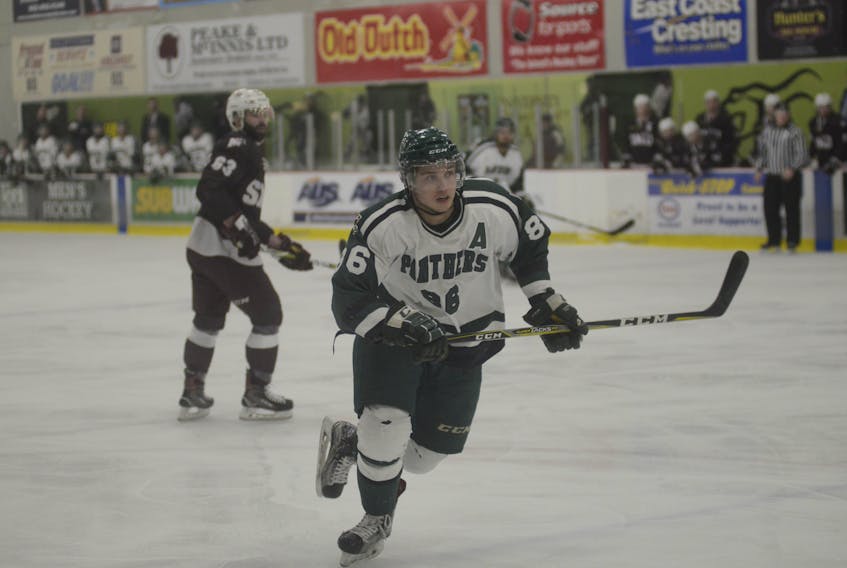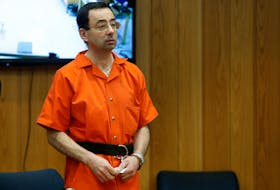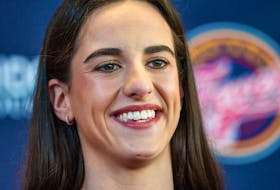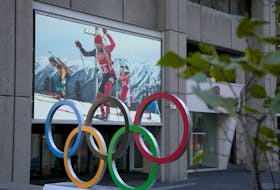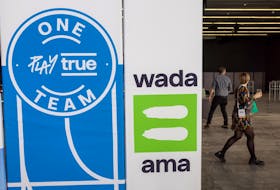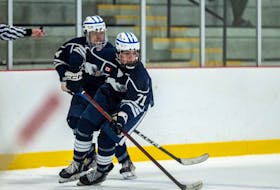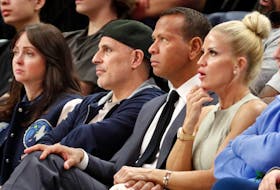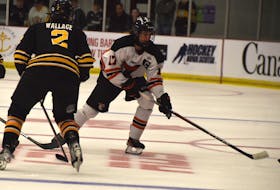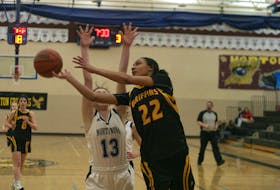The Newfoundland Growlers have their first player. Marcus Power has an early birthday present.
The Growlers have signed Power, a native of St. John’s and a former major junior and Canadian university hockey star to a one-year ECHL contract. And while the Toronto Maple Leafs organization already has a number of players under American Hockey League deals and who will probably see time with the Leafs’ new ECHL affiliate in St. John’s, Power is the first signed directly by the Growlers. That officially makes him the initial player on their roster.
The deal was a product of mutual interest and ideal timing.
Power, who turns 25 on Saturday, finished a four-year career at the University of Prince Edward Island this past spring, just weeks after the Growlers officially joined the ECHL as an expansion club.
“Once I saw a team was going to Newfoundland, I saw it as a way I could stay in North America. That was always my goal, to try things out (as a professional) here after school,” said Power on Thursday.
Through his agent, the scoring forward reached out to the Maple Leafs, eventually learning there could be an opportunity to sign an ECHL deal with the Growlers.
He admits he had originally been seeking out an American Hockey League contract, but came to see the Growler’s offer as an opportunity he couldn’t pass up.
“There was a time when you didn’t see many affiliations (between ECHL and NHL teams),” said Power, “but now it really is an affiliation league and a place you can grow your game.
“It means there is a real opportunity move up to the AHL and for some guys, even to the NHL.
“In this case, especially, it means your part of the Leafs system, plus I know how (pro) teams in St. John’s have been run over the years … always first class. And then there’s the fanbase they have.”
“I couldn’t turn it down.”
A clincher was when fellow Newfoundlander Ryane Clowe was named the Growlers’ head coach.
“That was actually a green light in my opinion,” said Power, who spent many off-seasons alongside Clowe working out with St. John’s personal trainer Bob Thompson.
“I saw the work ethic Ryane put in as a player, and the results he would have because of that. I expect he has the exact same worth ethic as a coach and that he’ll be a great teacher.
“To be able to start my professional hockey career with him in my hometown was so intriguing to me.”
Power also did some research on the ECHL, talking to friends and former teammates, including UPEI Panthers alumni like ex-linemate Chris DeSousa and defencemen Reggie Traccitto and Ryan MacKinnon, who’d all gone on to play in the second-tier minor pro circuit.
He also sought the counsel of Panthers head coach Forbes MacPherson, who had played over 600 games in the minor leagues, including one season in the ECHL and part of another with the AHL’s St. John’s Maple Leafs.
“They all spoke really highly of the ECHL. They say there’s a lot of skill and that it’s fast-paced,” said Power, who also noted that with just 16 skaters in ECHL game-day lineups, the chance to show your stuff increases.
“There are usually 10 forwards and six defenceman, so if you’re a forward and in the lineup, you’re probably not going to really sit on the bench.
“If you’re playing, you’re going to get some icetime. With that and it being high-intensity, that works for me, especially the way I play.”
The way Power plays is with offensive skills. In his first three seasons of Atlantic university play with UPEI, he either led the Panthers in scoring or shared the team points lead. Last season, he led the school with 17 goals, and with 29 points in 30 games, was runner-up to Kameron Kielly in overall scoring.
His university production was a carry-over from his time in the Quebec Major Junior Hockey League. Power, who had played major midget hockey with the St. John’s Fog Devils and 2010-11 Atlantic champion Privateers, spent three full seasons in the QMJHL with the Rouyn-Noranda Huskies, where his teammates included Sven Andrighetto of the Colorado Avalanche and Nikita Kucherov of the Tampa Bay Lightning.
In his first two years in the ‘Q’, Power developed a reputation as a reliable two-way centre, but by the time he entered his overage campaign, he was high-scoring winger, amassing 109 points in 2013-14, second only in the league to future Detroit Red Wing Anthony Mantha.
His four years at UPEI have seen Power earn a business degree (with a concentration in finance) and refine his game to the point to where he wants to find out if it will translate to the next level.
“I had a couple of European options for next season, but I always said that when I was coming right out of school, my first choice would be to stay in North America and if I had to, lean towards (Europe) later,” said Power.
“I wanted to start in North America, to test myself and to prove myself what I can do. I want show what my game is and find out where it is.
“This is the time and the place for that.”
Power has spent the last couple of off-seasons in Charlottetown, and outside of a brief trip home to St. John’s, will remain in P.E.I. for most of the rest of the summer.
But he won’t be just soaking up the sun at Cavendish or Brackley Beach.
“I’m training five or six days a week and skating two or three times,” he said. “It’s definitely a commitment, but if you put in the work in during the summer, you will definitely see the results on the ice in the fall and winter.
“For me, that’s more important to me than ever.”
[email protected]
Twitter: @telybrendan

